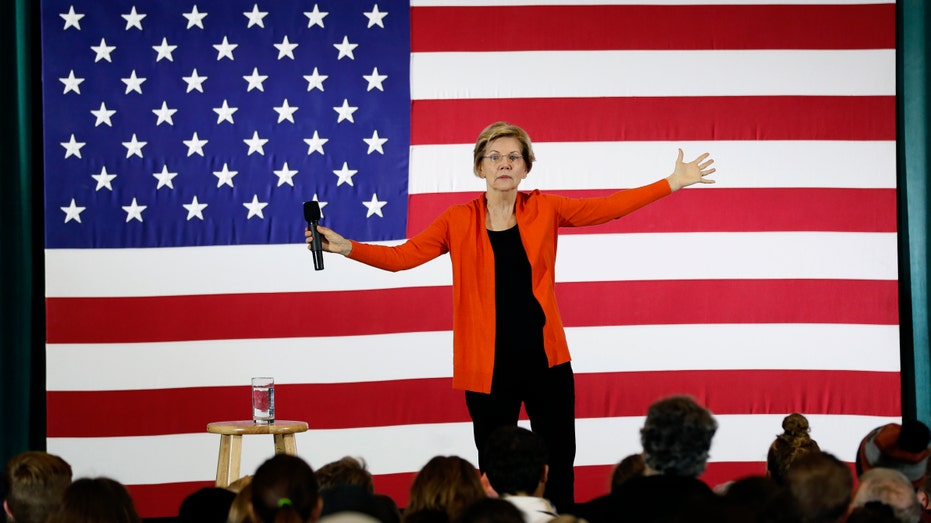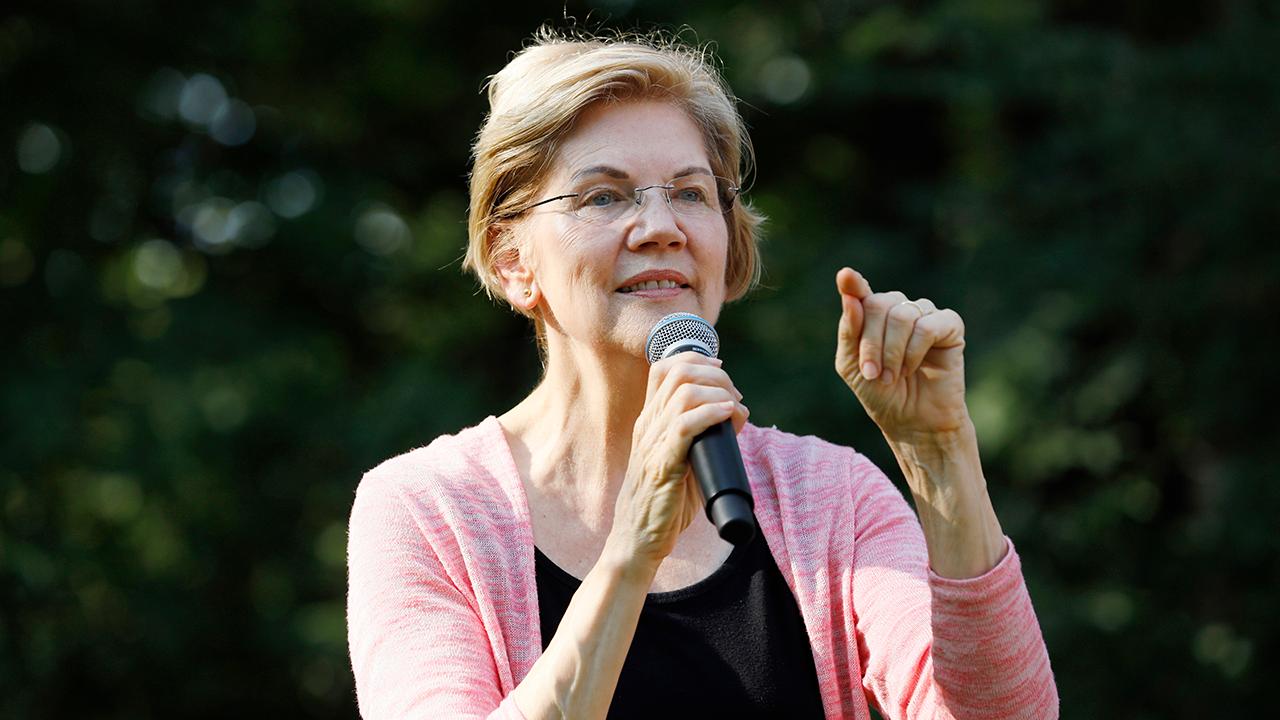Warren’s wealth tax would raise $1T less than she projected, study finds
Warren's tax would generate about 30% less than her campaign initially said
Sen. Elizabeth Warren is overestimating the proceeds that her plan to tax extremely rich Americans would generate, according to a new study, potentially diminishing a signature tenet of her presidential campaign that would be used to fund ambitious proposals to reshape the U.S. economy.
The Democratic candidate’s tax, if implemented, would raise between $2.3 trillion and $2.7 trillion over the course of a decade, well below the $3.75 trillion in revenue her campaign is projecting the tax on millionaires and billionaires would bring in during that period, according to a new study released by the University of Pennsylvania’s Wharton School.
Essentially, the Penn Wharton Budget Model, a nonpartisan, independent research organization, found that Warren’s tax would create between $1 trillion to $1.3 trillion less than she has estimated, or about 30 percent.
Under Warren’s plan, which she rolled out in January, there would be a 2 percent tax on individuals with a net worth above $50 million, and a 6 percent tax on those worth more than $1 billion. The Massachusetts Democrat’s campaign said she intends to use the tax to cover her plans for universal childcare, free public college tuition, eliminating student loan debt and Medicare-for-all.
About $1 trillion would go toward Warren’s $20.5 trillion single-payer health care system. She has insisted that she will not need to raise taxes on middle-class Americans in order to finance her proposals, although economists on the left and right have questioned the numbers.
The reason for the huge discrepancy in estimates, researchers said, is because the study took into account likely responses by taxpayers to either legally reduce their tax exposure via loopholes or illegally dodge the law. (Without any tax avoidance, legal or illegal, researchers projected the policy would raise $4.8 trillion).

Democratic presidential candidate Sen. Elizabeth Warren speaks during a town hall meeting at Grinnell College, Monday, Nov. 4, 2019, in Grinnell, Iowa. (AP Photo/Charlie Neibergall)
Warren developed the plan with the help of two economists at the University of California at Berkeley, Gabriel Zucman (the author of “The Hidden Wealth of Nations”) and Emmanuel Saez. They say the $3.75 trillion figure is realistic because it includes a series of anti-avoidance measures, including mandatory audits and a boost in funding for the IRS.
Critics often point to Europe as evidence a wealth tax won’t be effective in the U.S. In 1990, 12 countries in the Organization for Economic Cooperation and Development had wealth taxes. Just four — France, Norway, Spain, and Switzerland — have one today.
GET FOX BUSINESS ON THE GO BY CLICKING HERE
An OECD report from 2018 observed that countries rolled back wealth taxes for several reasons, including the failure “to meet their redistributive goals.” Overall, revenues collected from taxes on the rich have, “with a few exceptions, been very low,” the report said. Basically, European countries found it challenging to actually enforce the wealth tax and force the rich to pay more to the government. Detractors also argue that because countries compete with each other to be investor-friendly, establishing a wealth tax would result in the rich fleeing from that country, taking with them any investment or possible economic growth.
Still, Zucman has maintained that the failure of a wealth tax in Europe does not mean it would fail in the U.S. If properly enforced, he wrote in a February paper, the wealth tax would effectively reduce the fortunes of some of the richest Americans.
“All economists agree that, to the extent that it would not be entirely avoided, a progressive wealth tax would have real economic effects,” Zucman wrote. “Given the sharply progressive nature of the wealth tax, these effects would primarily be distributional.”
The Wharton study also found the tax would shrink the economy between 0.9 percent and 2.1 percent by 2050, depending on how the revenue was spent. If the money went toward investing in early childhood education, it could lead to “additional labor-market dynamics that boost the economy,” by, for instance, increasing female labor-force participation rates over time.
“At the same time, a considerable amount of wealth inequality in the United States has historically been driven by entrepreneurship, a factor that has received very little attention in tax models and analysis,” the researchers wrote. “The level of risk-taking that drives new innovation, however, could be materially impacted by wealth taxes over time.”
There has never been a wealth tax in the U.S. If established, it would likely face a constitutional challenge, although scholars remain split about the legality of such a levy.
CLICK HERE TO READ MORE ON FOX BUSINESS




















